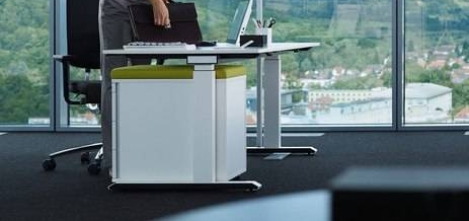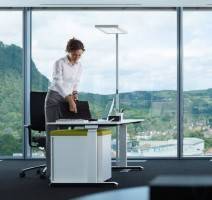October 13, 2015
Third of employers admit rise in numbers of staff coming to work when ill 0
 Nearly a third of employers have reported an increase in people coming to work while they are ill, according to the annual CIPD / Simplyhealth Absence Management Survey. The survey of nearly 600 employers found that 31 percent have seen an increase in ‘presenteeism’ in the last year. It also claims that any increase is likely to be associated with a culture in which working long hours is seen to be the norm and where operational demands take precedence over wellbeing. Employers that have noticed an increase in presenteeism are nearly twice as likely as those that haven’t to report an increase in stress-related absence, and more than twice as likely to report an increase in mental health problems amongst its staff. However, despite this, nearly three-fifths (56 percent) of organisations that have reported an increase in presenteeism haven’t taken any steps in order to discourage it.
Nearly a third of employers have reported an increase in people coming to work while they are ill, according to the annual CIPD / Simplyhealth Absence Management Survey. The survey of nearly 600 employers found that 31 percent have seen an increase in ‘presenteeism’ in the last year. It also claims that any increase is likely to be associated with a culture in which working long hours is seen to be the norm and where operational demands take precedence over wellbeing. Employers that have noticed an increase in presenteeism are nearly twice as likely as those that haven’t to report an increase in stress-related absence, and more than twice as likely to report an increase in mental health problems amongst its staff. However, despite this, nearly three-fifths (56 percent) of organisations that have reported an increase in presenteeism haven’t taken any steps in order to discourage it.







 Biodynamic lighting is an artificial light source that replicates the dynamic variations of daylight and sunlight through a light management system. Up until recent times, it was commonly believed that light was only needed for seeing. However, in 2001, an American scientist, G. C. Brainard discovered a circadian photoreceptor in the retina, which receives a specific quality and quantity of light, and sets the biological clock.* He discovered that light not only provides us with the ability to see, but that light enters the eye via the ‘fourth pathway’, which has a vital non-visual or biological effect on the human body. His studies showed that a certain quantity and quality of light stimulates the biological clock, also known as the circadian rhythm, which regulates hormone levels, particularly melatonin and cortisone, in the body and so plays a vital role in our physical and mental wellbeing.
Biodynamic lighting is an artificial light source that replicates the dynamic variations of daylight and sunlight through a light management system. Up until recent times, it was commonly believed that light was only needed for seeing. However, in 2001, an American scientist, G. C. Brainard discovered a circadian photoreceptor in the retina, which receives a specific quality and quantity of light, and sets the biological clock.* He discovered that light not only provides us with the ability to see, but that light enters the eye via the ‘fourth pathway’, which has a vital non-visual or biological effect on the human body. His studies showed that a certain quantity and quality of light stimulates the biological clock, also known as the circadian rhythm, which regulates hormone levels, particularly melatonin and cortisone, in the body and so plays a vital role in our physical and mental wellbeing.





















October 12, 2015
How workplace design is more closely reflecting how we actually work 0
by Adrian Campbell • Comment, Flexible working, Workplace design
(more…)